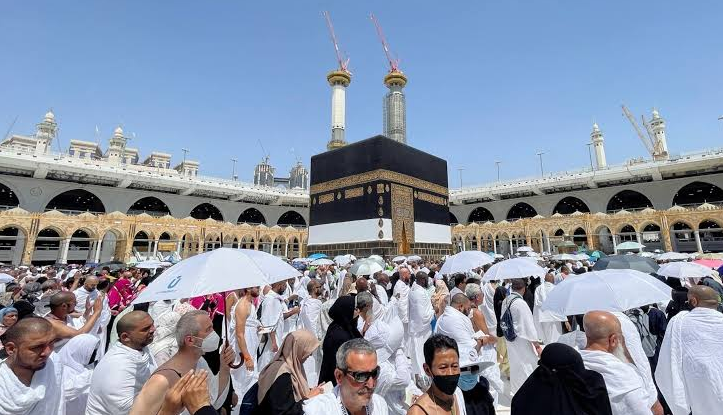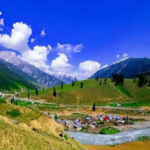PERSPECTIVE
Hajj is not merely a journey; it signifies a profound transformation wherein a pilgrim strengthens its faith and commits to a life of decency, honesty, and honour. Such transformation can ignite a significant social revolution, provided we grasp the true essence of Hajj, the fifth fundamental pillar of Islam.
Following the conceptual understanding and practical adherence to Eimaan (faith in God), Salah (prayer), Sawm (fasting), and Zakaat (almsgiving), Hajj holds equal significance among the pillars of Islam. Simply put, Hajj means resolving to visit the Kaaba in Makkah and performing the prescribed rites which is symbolically a war against Satan (devil). This pilgrimage is obligatory at least once in a lifetime for all Muslims who are financially and physically able. The Qur’an states:
“A duty owed to Allah by all men is the pilgrimage to the House, if he is able to make his way there. And as for the disbeliever, God is all-sufficient, needing nothing from all the worlds” (Aale-Imran 3:97).
Failure to perform Hajj, despite being capable in all respects, is described as Kufr (disbelief). Prophet Muhammad (SAW) emphasised the obligatory nature of Hajj and cautioned those who neglect it:
“Whosoever possesses provisions for a journey to the House of Allah but does not perform Hajj, then his dying is like the dying of a Jew or Christian” (Tirmidhi). He further stated:
“Whosoever is not prevented from proceeding for Hajj by any dire need, tyrant ruler, or confining disease, and yet fails to perform it and dies in this condition, may as well choose to die either a Jew or Christian” (Darimi).
The question arises: Why is Hajj so obligatory and emphasized in Islamic teachings? This is due to its profound socio-spiritual blessings, impacting both individual and collective domains of life. Islamic teachings and worship aim to reconstruct society in accordance with divine values and norms. Therefore, I will try to analyse the individual and social dimensions of Hajj, rather than its genesis or guidelines for pilgrims.
Journeys serve various purposes, but the Hajj pilgrimage is unique. It is undertaken solely to fulfill Allah’s (SWT) command, detached from personal interests like business, adventure, or study. An ideal pilgrim, intent on pleasing Allah (SWT), begins preparing with careful thoughts and deeds, seeking forgiveness for past wrongdoings. This intention manifests in actions, generating a propensity for good and a disdain for evil, leading to progressive self-purification.
The spiritual journey intensifies as the pilgrim dons the Ihram (two unsewn sheets of cloth), symbolising humility and equality before Allah (SWT). This humility is further reinforced when the pilgrim reaches the Kaaba, performs Tawaf (circumambulation), and engages in the rites of Sa’i, Mina, Arafat, Muzdalifah, and Rami Jimar.
Beyond individual renewal, Hajj has significant collective dimensions. It is a season of righteousness, piety, and reawakening, fostering unity among Muslims worldwide. Pilgrims from diverse cultures converge on the Kaaba, donning the same Ihram and engaging in unified worship, symbolising a universal community of God-worshippers. This unity transcends socio-cultural differences, exemplifying the concept of the Ummah with a strong message of peace and tolerance.
The grand gathering of pilgrims embodies brotherhood and principles desperately needed in today’s conflict-ridden and peace-deficit world. This peace extends beyond Hajj, as Umrah also fosters a continuous atmosphere of harmony. The Qur’an describes Makkah as Baladil Amin (a city of peace), emphasising the sacredness and peaceful nature of this holy site.
Despite these ideals, empirical observations reveal a disconnect in the Muslim community’s understanding and practice of Hajj. Many pilgrims lack comprehension and adherence to the initial pillars of Islam, diminishing the transformative potential of Hajj. Pre-Hajj behaviour often includes attending parties and gathering material comforts, rather than focusing on repentance and spiritual preparation. During Hajj, time spent in markets rather than devotion further detracts from the experience.
However, a minority of pilgrims undertake Hajj with genuine devotion, avoiding distractions and exemplifying the true spirit of the pilgrimage. These individuals, with their spiritual literacy, harness Hajj’s potential for moral, spiritual, and social empowerment to win the war against Satan.
(Author is a regular columnist of Rising Kashmir and can be reached at: [email protected])









